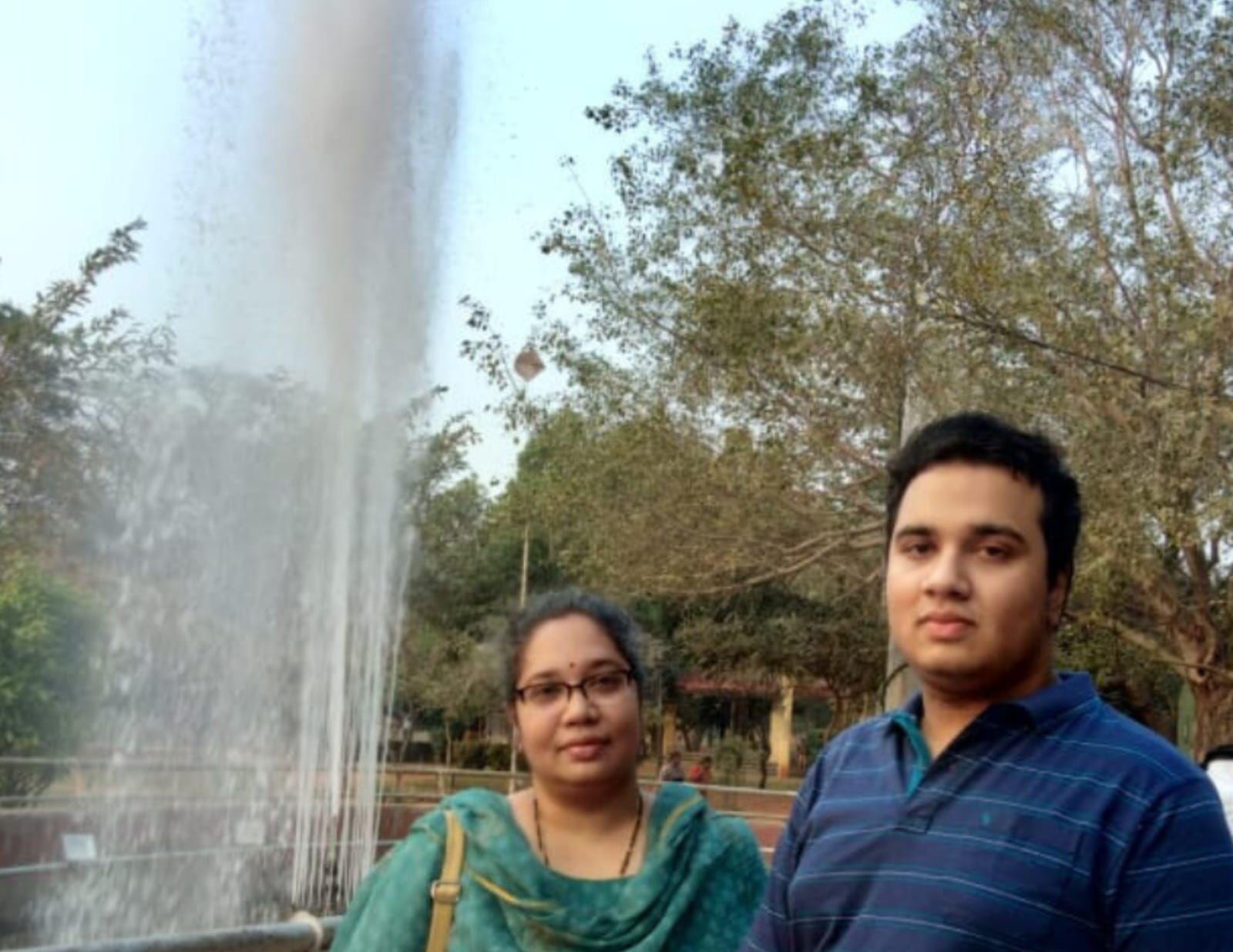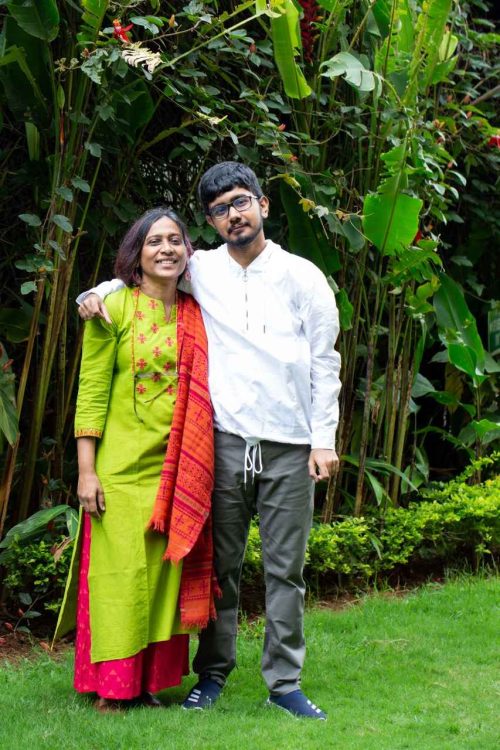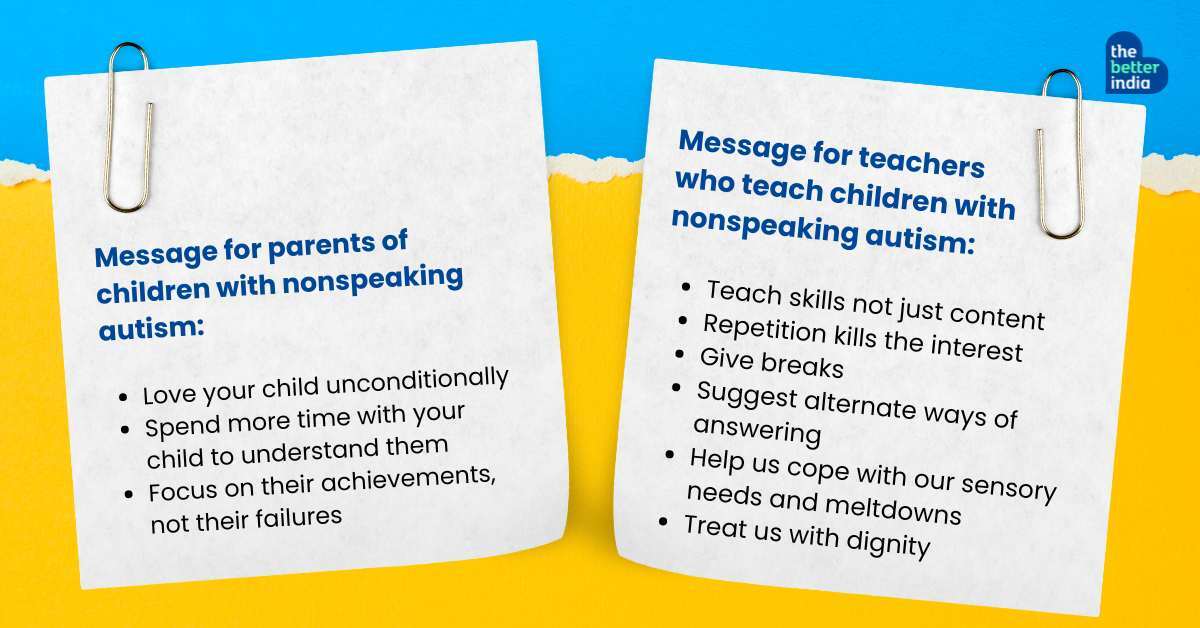When Tanya Joseph (15), who identifies as an individual with non-speaking autism was asked if she could change anything about her situation, she didn’t flinch a second before writing down her response, “If I were to do that. I wouldn’t be Tanya anymore.”
“Autism is a part of me,” she continued. Tanya’s response is a window into hers and the worlds of 31 other people diagnosed with non-speaking autism, who have bared their souls in the book ‘Talking Fingers’.
Sharing Tanya’s view, they believe that autism is not something to be wished away, but an integral piece of the jigsaw which is their lives.
Their perspective amazes me.
The research leading up to this piece introduced me to the spectrum of non-speaking autism, referring to cases in which a person with autism has a delay or difficulty with speech. As statistics in Healthline suggest, around 25 to 30 percent of people with ASD (Autism Spectrum Disorder) are minimally verbal.
Now, I could convey the essence of non-speaking autism to you through research findings, news publishings and heavy jargon. But it wouldn’t do it justice. Instead, a sentence I read in an article published by the Organisation for Autism Research does the trick — Imagine you answer everyone who says something to you, but only you can hear it.
Written by Philip Reyes, an individual with non-speaking autism, the article condemns the popular belief that non-speaking equals non-thinking.
And it is this very point that Padma Jyothi and Chitra Paul — both mothers to children with non-speaking autism — are driving home through their books Talking Fingers (2022) and Talking Fingers Volume 2 (2024).
See their world for what it is
Silence speaks louder than words.
While compiling Talking Fingers, the meaning of this adage became clear to the mother duo, who refrain from calling themselves authors — “We have edited the book; they [the 32 individuals] are the real authors”.
Through their chapters, the books attempt to bust myths that have shadowed individuals with autism for decades. And this is done through a unique approach.
Instead of a one-directional narrative, the books are a first-hand account of the challenges, hopes and dreams of people who belong to the neurodivergent spectrum. Artists, writers, and publishers, these 32 individuals may have non-speaking autism but that hasn’t hindered them from making people sit up and take note of their words.
“Don’t eulogise us,” is their only ask. “We are humans first; and people with autism, second.”
Today, the stage is theirs. Here’s what they want the world, you and me to know.
‘Call us people with autism; not autistic’
“People call us autistic as we can’t control our emotions. By that logic, so many humans cannot control their emotions. Does that mean they are all autistic?” Sahana Singaravelan (13) writes.
And she makes a good argument.
But while the Chennai native has a bone to pick with those who call her ‘autistic’, 20-year-old Satvik Sharma takes offence with the term ‘these children’ used by people when referring to individuals with autism.
Failing to see why any of these terms need to be used, 18-year-old Aditi Sowmyanarayan — whose autism advocacy reached the United Nations stage in 2023 — underscores the irony of how such debates only crop up in conversations of disability.
“When a person develops diabetes, it does not define them entirely. Similarly, autism is one aspect of our personalities,” she points out.
‘The sounds we make aren’t random, don’t laugh’
The desire to express themselves extends into the sounds made by people with autism. Explaining this, S Achyuthkeshav says he cries and screams, not when he is having a bad day, but instead to forget the heaviness and clutter on his mind.
Meanwhile, 21-year-old Srijan Sengupta’s cries have another meaning. Srijan finds solace in stripping away memories of the bad days, instead of ruminating on things beyond his control. But he adds that every now and then, he has his moments. “I cry within myself. Sometimes if I get too agitated, the feelings escape. I become angry and yell,” he shares.
‘We understand everything you’re saying; even the harsh things’
Introducing himself as “a friendly neighbourhood adventure enthusiast” to anyone he meets, Ishaan Saxena (14) hates the unfairness of not being able to tell people exactly what he thinks of their harsh comments.
“Sometimes people say things in front of me thinking that I don’t understand. If only they knew,” he writes. Autism does not mean a lack of empathy.

Seconding his friend is 21-year-old Anudeep Kandula, Padma’s son. “Are we the ones waging wars and killing innocent people? Are we the ones abusing children and women? Are we the ones who turn a blind eye to the suffering in the world and enjoy life?” His questions are direct. “We aren’t. Because we have empathy,” he answers.
‘We are perfectly able to communicate. Don’t be shocked’
Through Talking Fingers, Padma and Chitra have given a voice to 32 young minds who felt imprisoned by their inability to express themselves through speech. With this newfound voice, many of them say it has opened up a world of possibilities.
For instance, 31-year-old Soumya Upadhyay from West Bengal found a medium through which he could articulate the harrowing time he had experienced during his childhood; the effect of multiple seizures throughout the day.
How does it feel to write down everything you cannot say out loud?
“Like being able to climb a high mountain,” says 16-year-old Aadi Narayanan Nair. It took Aadi six years to learn how to type — he credits a very patient mother for this. Today, words are his best friend.
‘Our sensory world is different from yours’
People with autism tend to have heightened senses; their nerves are attuned to subtle sounds.
Letting us into their worlds, Ahan Sengupta shares one of his biggest fears — cutting his nails. “For the longest time, I thought they were a part of my body and that I would be hurting myself if I cut them.”
The same fear gripped him when it came to injections. Elaborating on the paranoia that sometimes engulfs him, he says, “People with autism always feel that something will be snatched from them.”
Ahan and his co-authors agree that shrill noises, bright lights, and people taking their pictures are huge stressors. As 19-year-old Navneet Kulkarni shares, “My mind is like a shopping mall full of crowds, different music, too many shops, too many bright lights, aromatic smells; all my senses get so distracted with so many things in my surroundings.”
‘Stimming makes us feel comfortable’
Short for self-stimulating behaviour — stimming refers to doing an action over and over or repeating the same sound several times. A coping mechanism is how 18-year-old Aarav Krishnatheeram describes it to be. Life is tough without it, he notes. While for Aarav, the stimming involves actions like shouting and rocking himself, for Navneet it means moving his fingers up and down.
“Sometimes my behaviour may look funny to people,” he says, adding that it provides him recourse when he is in a high-activity zone. “When I go out, all the surroundings distract my vision, it feels like my body is flying and my head is banging. To balance my sensory system I do stimming. I feel safe and comfortable when I fidget,” he explains.
‘Don’t treat us like we don’t exist’
According to Chitra’s son, Tarun Paul Mathew (17), the saddest reality is losing one’s identity. “This is true for many of us non-speaking autistics,” he notes. But writing, he says, has helped position him and other neurodivergent individuals (who are unable to communicate through speech) on the same level playing field as their neurotypical counterparts.

Tarun is proud of his autism. “Why not?” he writes. “I have a really unique brain that gives me a different view and understanding. It makes my life brighter.” But, Tarun emphasises, what would truly make all the difference in the world would be to be recognised as a person with feelings and dreams.
‘Parents and teachers, your support is important’
Coimbatore-based Nishant Sriram (26) has a condition called apraxia of speech — a condition that affects the neurological pathways responsible for producing speech. To this end, he has two outlets — writing and sports. Ask him what has helped him reach the pinnacles of success in both of these areas, and he credits supportive mentors he met along the way.
And here’s what he wants other parents and teachers to learn:

‘We are not pretending to be dumb’
Though these words are hard-hitting, 17-year-old Dyutit Gopinathan believes they need to be said.
When asked about any message that he would like to share with parents or teachers or simply anyone who is witness to the journey of a person with non-speaking autism, he says, “I would tell them that it is not easy being so slow to learn daily skills. It is pretty tough to get through every day; so they need to understand that we are not lazy or pretending to be dumb. It’s not really helpful to us, it discourages us so much that we stop believing in ourselves. It is not an ordinary life we have but it is very rich.”
Talking Fingers is an ode to 32 people who are unable to converse in the way we think as ‘usual’. But their words hold great power. And so do their dreams. As one of them, Mithul Sandeep, shares, “My dream job is to join ISRO. I want the world to say only Mithul can do this. They call me a special child. I will show them that I am special.”
Buy Talking Fingers here.
Buy Talking Fingers Volume 2 here.
(Edited by Padmashree Pande)
No comments:
Post a Comment